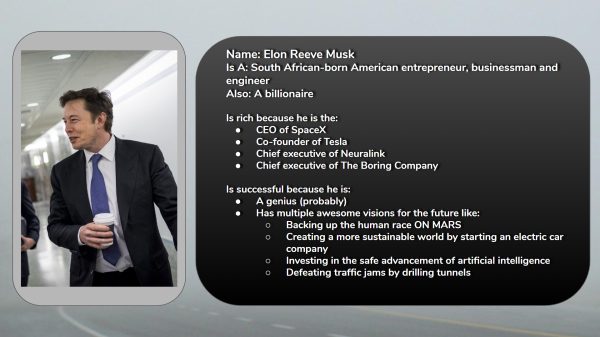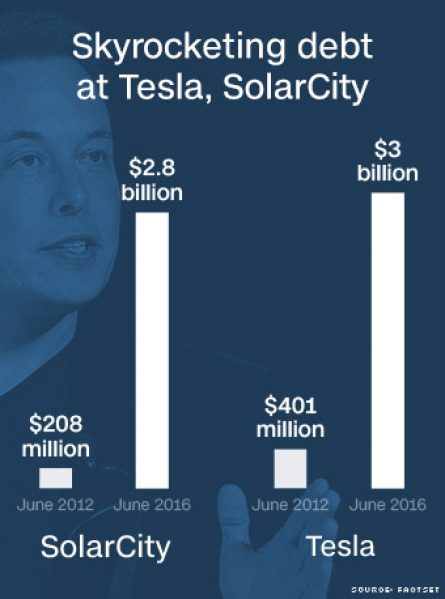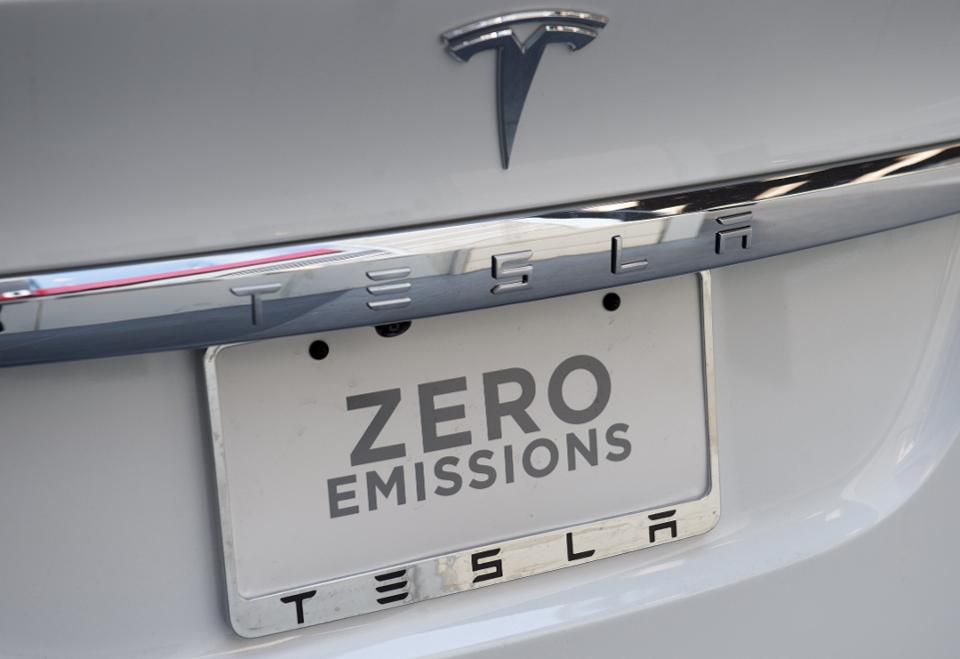By Rin and Nimue Wafiya

When it comes to Elon Musk, Newton’s third law (see: here) doesn’t just stop at the measurable forces of rocket science, but encompasses the dichotomy of people’s attitude towards him; for all the love Musk gets, he’s getting an equal amount of hate.
If you’re unfamiliar with the disapproval surrounding this visionary bossman, they’re often about his endeavors with Tesla (the electric car company he founded) or about his slightly rambunctious tendencies (one of which involves a certain green leaf). The critical arguments are as such:
- Musk’s visions for the future don’t directly deal with the current climate crisis
- He’s a skyscraper dominating a field that should not be dominated in the first place
- His employees might be severely overworked
- Last but not least, he’s building a very promising world, for the rich
So, the tenets of detestation have been raised. What do we, as an audience, stand to gain from analyzing yet another famous person with haters? You’ll have to read on to find out:
Where’s the Elon Musk X Greta Thunberg Collab?
Some people are bitter about Musk for not actively and directly contributing to a healthier planet. Opinion pieces like this one highlights the deep disapprobation of Musk’s efforts, going as far as to say, “…we have been thoroughly duped by a man-child playing a very expensive game of spaceship in his backyard”. A point was made, if you’re not against him, you’re either monetarily or emotionally invested in his starry-eyed fantasy. You’re ecstatic when the media, at certain points in time, gets saturated with news of SpaceX’s countless trial runs in the name of preserving humanity, momentarily engrossed by the idea of becoming an interplanetary species while ignoring our largest threat of all: the dying planet we live on.
Two different figures, two different priorities
More than 70 per cent of harmful global emissions come from as few as 100 companies ⎼ the bulk of them being big shot fossil fuel companies. Here’s where the aforementioned opinion piece fails to address Musk’s immediate contributions to our lives, namely Tesla and SolarCity. It’s easy to piggyback on Musk’s largest endeavor, SpaceX, while pushing aside the facts and figures of his environmentally friendly companies that are undoubtedly doing our atmosphere justice.
Humans release about 37 billion metric tons of CO2 to our atmosphere every year and as of now, Tesla, Inc. has managed to save 3.5 million tons of these gases by simply removing the number of fossil fuel powered cars on the road. If you’d like to see this major flex happening live, here’s where you can catch a live counter of all the emission Tesla is preventing from being released to the atmosphere. This number will keep on increasing, not just through the sheer morality of mankind, but because of Tesla investing billions in the large scale manufacturing of battery packs for its vehicles. The more we scale the production of batteries the cheaper they become and the more accessible to the public they are. So, for Tesla to invest to the point of unpalatable debt, speaks volumes of their initiative to literally transform our automotive industry that will, in turn, alleviate the environmental crisis by a ton.

Source
For years now, fossil fuel companies have been avoiding changing their business model from oil to electric for obvious reasons ($$$). Many companies did not have the foresight like Toyota did – the Japanese car company decided to introduce their first hybrid model, the Prius, in 1997. Toyota did suffer a loss on every Prius it sold, but in only a few years, they managed to not only turn profits but become leaders in the hybrid market. Similarly, Tesla is putting all they have in a sustainable future, knowing the future has to be a green one.

Source
Elon Musk is spearheading the revolution of electric cars in more ways than one; it is a goal of his to also reduce the prices of his own car models in 3 years, and he’s willing to do so by shifting to an online-only sales model (goodbye hot car stores) to make the price cuts financially feasible.
You might be asking about SpaceX’s rocket engines that release trace gases and soot into the upper atmosphere that contribute to ozone depletion. Yes, rockets spit on the land from which they were birthed but rocket launches aren’t frequent, which makes their carbon footprint miniscule compared to the automotive industry. Also, we can take this with a grain of salt but Konstantin Tsiolkovsky puts up quite the argument for space travel: “The Earth is the cradle of humanity, but mankind cannot stay in the cradle forever.”

Source
Coming back to the drawing board, the hater said: Musk doesn’t actively and directly contribute to the climate crisis. The information above says otherwise, but is that it?
Not exactly, Musk can do a little better because no system is perfect. My father gave me some food for thought when Elon Musk was brought up in conversation. The thing about Tesla is that, much like a Kardashian, it may be hogging the spotlight unnecessarily. Once upon a time, the media was flooded with news about Tesla Easter Eggs. Apparently, you can push back on the cruise stalk 4 times in rapid succession while on autopilot and the road on the Instrument Cluster turns into a rainbow road (yes, like in Mario Kart) with a cowbell-infused version of Don’t Fear The Reaper playing on the speakers.

Source
Musk is known for his antics, especially when we think about the Starman he launched into space in a Tesla Roadster to test Falcon Heavy (whoa there). But when news like this starts to tower over the industry, we’re left to question Musk’s motives. Is he truly kicking sustainable transport into gear or is he, quite selfishly, trying to make the best car you can show off to your upperclass friends? I mean, the ultimate goal is to make electric cars as accessible to the mass population as possible, right? Not to sensationalize certain features that aren’t all that necessary.
Elon Musk’s antics extend further than his company’s vision. If there ever could be a billionaire humanitarian, he would be it. In July last year, news circulated of the 13 Thai boys and their coach being trapped in a flooded cave. Musk responded to the news on Twitter, offering a brand new, custom submarine as a rescue solution. Two years before that, Hurricane Maria devastated Puerto Rico and plunged the island with power outages. Musk’s response? A generous donation of Tesla power battery packs. When Australia faced a similar problem following a storm in 2016, Elon Musk made a bet with the Australian government, stating that he and his company would be able to build ‘the World’s Largest Battery’ in 100 days. He further states that, if unable to fulfil such a tall order in that timespan, he would do it all for free.
No doubt, his efforts are awe-inspiring and effective, although even the best of us would be at least a little skeptical of his extravagant offers and costly solutions. However, this begets the question, what about the people working under him and alongside of him who actually help him fulfill his promises? There have been numerous reports of Elon Musk overworking himself, sometimes working up 120 hours a week. He’s set a strict work ethic for himself, which apparently extends to his employees. Musk had previously admitted that his employees work long, hard hours, albeit in a safe and conducive environment. A controversy started up in 2017 when a few of his former employees came forward to expose said working conditions. Tesla denied this, of course, but a seed of doubt has been planted against this prestigious company.

Source
Idealism costs money and sometimes, health. What Elon Musk really has to do, that was left not mentioned in that opinion piece we keep going back to, is to learn how to walk the fine line between creating a better world for all of us and creating a better world for the rich.






